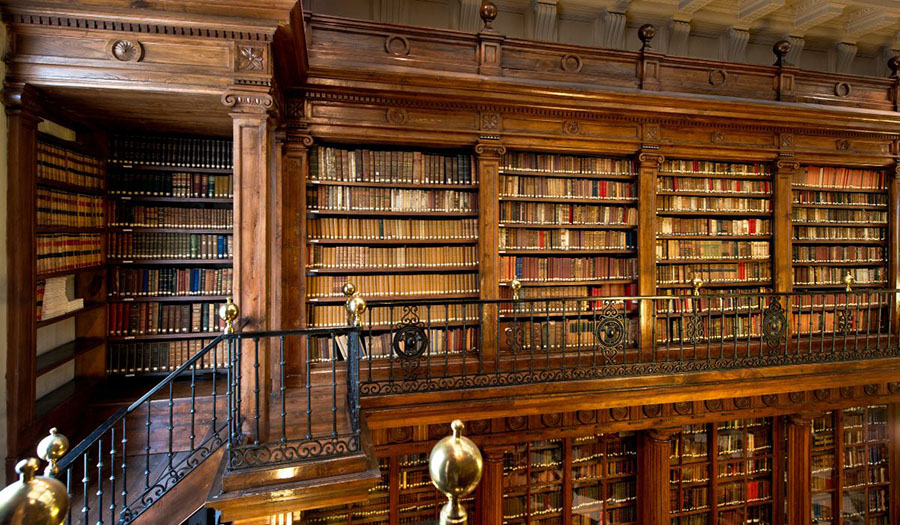In the hallowed halls of education, a raging debate has erupted, shaking the foundations of literature-based learning. At the center of the storm lies a question that has divided educators, parents, and students alike: Should problematic classic literature be removed from school curriculums? As society grapples with issues of representation, inclusivity, and historical context, the fate of timeless works hangs in the balance.
The Tug-of-War Between Cultural Heritage and Modern Sensibilities
On one side of the battleground are the defenders of cultural heritage. They argue passionately that classic literature provides a glimpse into the past, acting as a window into the bygone eras of humanity. These texts, they argue, capture the essence of societal norms, values, and attitudes of their time, allowing students to develop a more comprehensive understanding of our collective cultural evolution.
Dr. Emily Thompson, an esteemed English literature professor, passionately advocates for the preservation of these works. "Classic literature is a tapestry of human history," she proclaims, "it helps us learn from our past and reflect on how far we've come as a society."
But the opposing forces are unyielding, as they raise the banner of modern sensibilities and inclusivity. Dr. Maya Patel, a sociocultural anthropologist, believes it is high time to embrace the voices that were once silenced. "While classic literature has its merits, we must not overlook the harm perpetuated by some texts," she asserts. "It's time to celebrate the diversity of experiences and promote underrepresented voices."
The Power of Uncomfortable Conversations
In the eye of the storm, a potent argument for retaining problematic literature emerges: the power of uncomfortable conversations. Proponents assert that these works force students to confront the complexity of human existence, enabling them to develop critical thinking skills and empathy. Dr. James Cooper, an education expert, contends that confronting uncomfortable ideas challenges students to think beyond their comfort zones, a crucial skill for becoming well-rounded individuals.
"Education is not just about absorbing facts; it's about questioning and reasoning," Dr. Cooper asserts. "Problematic literature provides an opportunity for students to engage in meaningful debates, fostering a generation of thoughtful and empathetic citizens."
However, the opposing camp warns against the cost of such conversations. Dr. Lisa Chen, a child psychologist, highlights the potential harm caused by exposing young minds to derogatory content. "The psychological toll of consuming harmful messages should not be underestimated," she warns. "We must prioritize the mental well-being of our students while promoting learning environments that encourage positivity and self-worth."
Striking a Balance Between the Past and the Present
As the battle intensifies, the battlefield expands to encompass the issue of educational relevance. Should curriculums be updated to better reflect the diverse world students inhabit today, or should they remain anchored in the past, preserving linguistic and literary heritage?
Dr. Sarah Johnson, an educational policy researcher, champions the need for change. "Education should be relevant and relatable to the lives of our students," she insists. "By introducing contemporary and culturally diverse literature, we empower students to see themselves reflected in their studies, fostering a more inclusive and enriching learning experience."
Nonetheless, defenders of classic literature, like linguistics scholar Dr. Robert Lee, remind us of the linguistic treasure troves these works present. "Language is a living entity, and the evolution of words and phrases can be better understood through the study of classic literature," Dr. Lee argues. "It's a linguistic journey that bridges the past and the present."
A Path Forward: Embracing Complexity and Nuance
As the battlefield of ideas rages on, perhaps the solution lies in embracing complexity and nuance. Rather than opting for a sweeping cancellation or stubborn preservation, educators could take a more thoughtful and balanced approach.
By curating a diverse array of literature, including classics, contemporary works, and those representing marginalized voices, educators can foster an environment where students are encouraged to think critically and compassionately. Acknowledging the problematic elements of certain texts while using them as catalysts for dialogue and growth allows for a more enlightened educational experience.
In the end, the controversy of canceling classic literature hinges on a delicate balance. By celebrating our cultural heritage while also challenging its problematic aspects, we can empower the next generation to build a more inclusive, compassionate, and enlightened society. It is through this thoughtful navigation that we can shape the future while honoring the lessons of the past.







